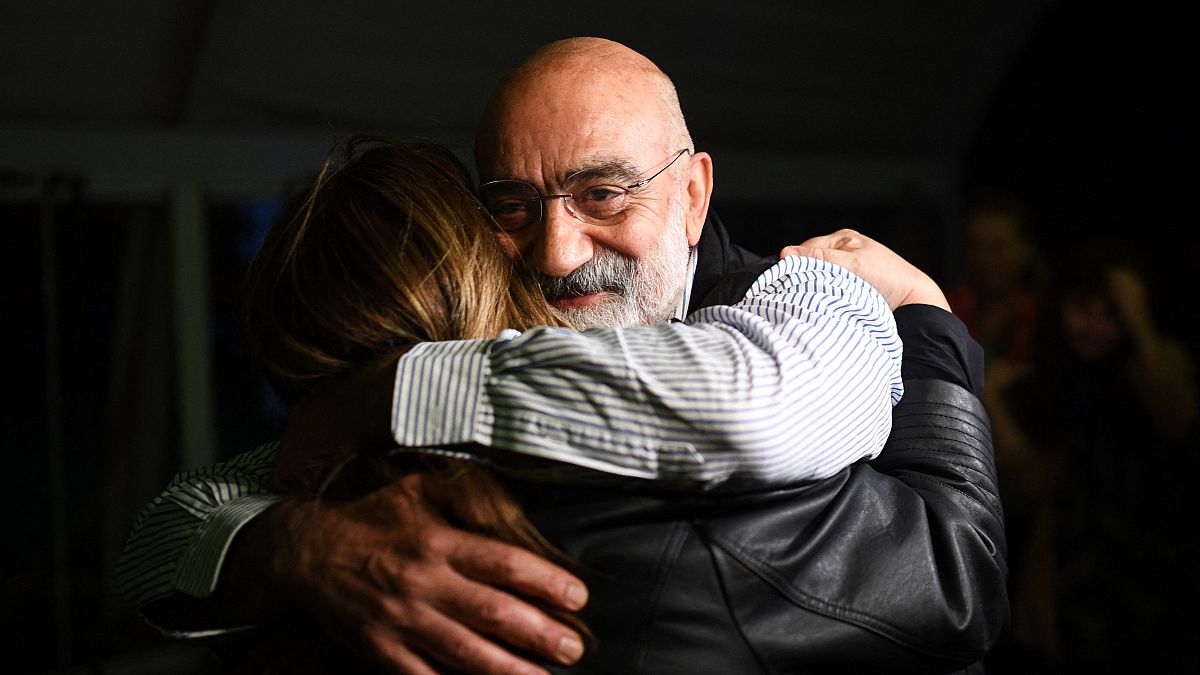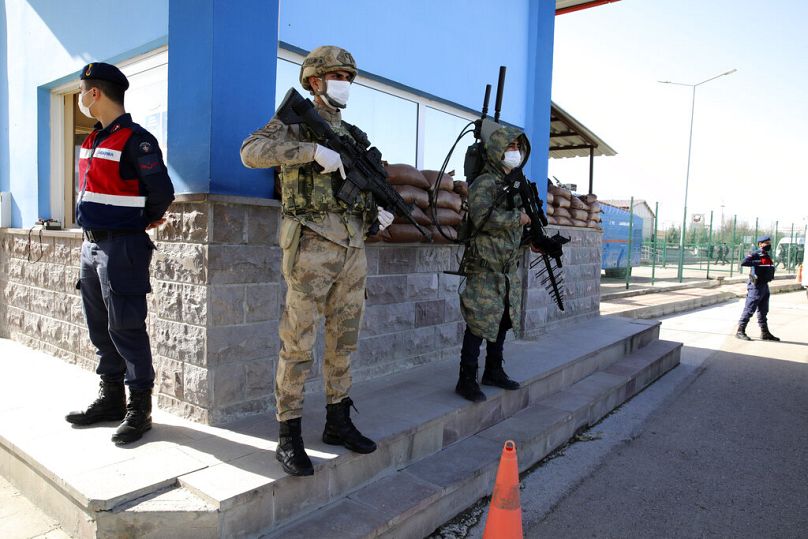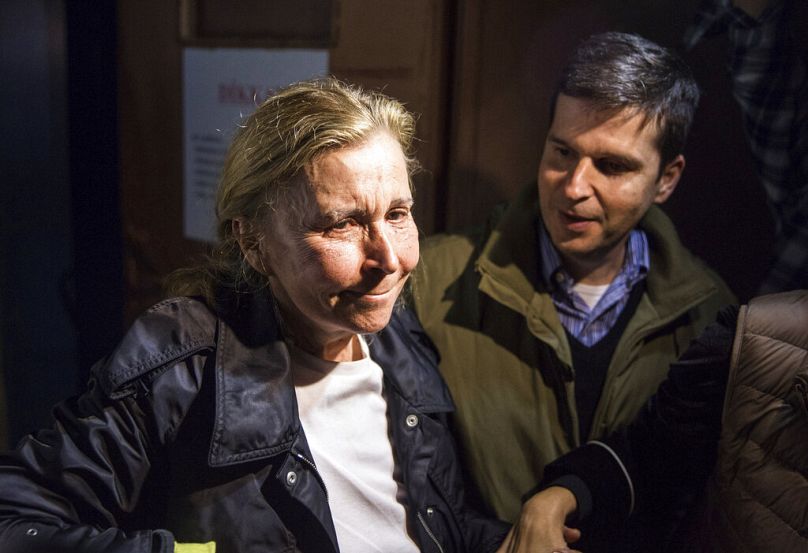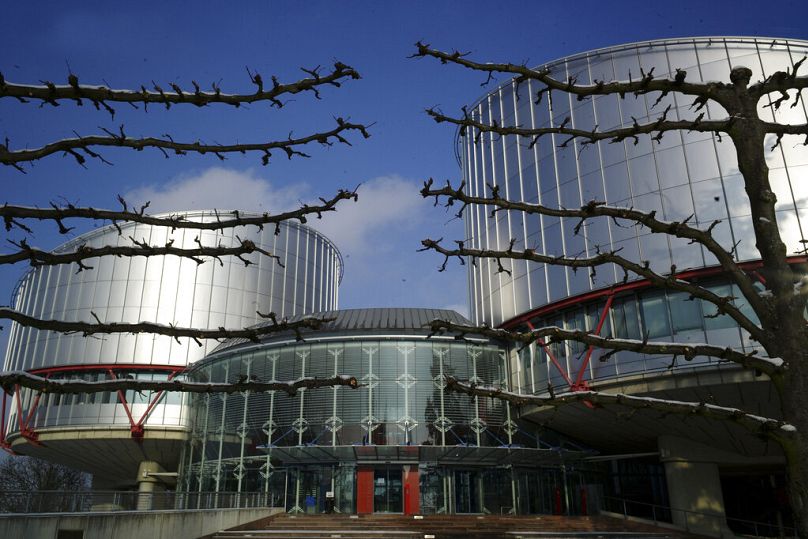The European Court of Human Rights has ruled that Turkey violated veteran journalist Ahmet Altan's rights to liberty and freedom of expression by jailing him on terrorism charges after the failed 2016 coup.
The European Court of Human Rights (ECHR) has ordered Turkey to pay €16,000 to veteran journalist Ahmet Altan, who it ruled was unreasonably convicted on terrorism charges.
The 71-year-old founder of liberal newspaper Taraf, and author of acclaimed prison memoir I Will Never See the World Again, has now been detained in Turkey for 4.5 years.
The case brought by the Turkish government against Altan sparked international condemnation and the international human rights community has continued to call for his release.
In a judgement published Monday, the ECHR's seven judges found "several violations of the right to liberty and security and a violation of the freedom of expression".
The incarceration of Ahmet Altan
Altan was first arrested at his home in Turkey in September 2016. The raid came months after an failed coup by a group of Turkish military officers that July, which the government blamed on a faith group it calls the Fetullahist Terrorist Organisation (FTO), otherwise known as the Gülen movement.
A total of 497 people have gone on trial since 2017 in connection with the coup, with 32 ex-soldiers handed life sentences at a hearing in Ankara earlier this month.
Before the coup in 2016, Altan had also penned several articles for Taraf that were highly critical of the Turkish government and President Recep Tayyip Erdogan.
He had accused the government of not abiding by the constitution, of arbitrary arrests and "armed assaults", and of behaviour that could ultimately inspire a military coup or uprising in the country.
Altan, his brother Mehmet Altan and fellow Turkish journalist Nazli Ilicak were accused by the authorities of knowingly supporting the attempted overthrow by spreading “subliminal messages announcing a military coup” on television.
They were held without charge for almost seven months before finally being indicted in April 2017, after which they were detained pre-trial for another 10 months.
In February 2018, all three were sentenced to aggravated life imprisonment, without parole, for “attempting to overthrow the constitutional order”.
Mehmet Altan was released four months later on appeal. But on re-examination of their cases, Altan and Ilicak were retried on the lesser charge of aiding and abetting the Gülen movement, which is designated a terrorist organization in Turkey.
Both were found guilty. Altan was then sentenced to 10 years and eight months in jail while Ilicak received close to nine.
In November 2019, Altan and Ilicak were released under supervision after more than three years behind bars. But the 69-year-old Altan was then re-arrested just a week later and brought back to Istanbul’s notorious Silviri Prison, where he remains to this day.
Journalist's diaries from Turkish jail haunt international community
In March 2019, Altan’s memoir I Will Never See the World Again, which was penned from his prison cell in 2018, was published in English translation and went on to garner international acclaim.
In it, the journalist wrote of his resignation to living the rest of his life behind bars: “I will never see a sky unframed by the walls of a courtyard. I am descending to Hades. I walk into the darkness like a god who writes his own destiny.”
The journalist’s re-arrest in 2019 horrified freedom of expression advocates, with Reporters Without Borders calling the charges against Altan, “one of Turkey’s most brilliant journalists”, “totally spurious” and demanding his unconditional release.
Thomas Hughes, executive director at Article 19, said at the time: "Re-arresting him just a week after his release amounts to psychological torture. Refusing to tell his lawyer whether or not he will be arrested adds insult to injury.
“Altan has criticised the Turkish authorities following his release and they appear to be determined to punish him for this. The terrorism charges against Altan have always been politically motivated and the entire case lacks even a shred of credible evidence."
The ECHR's ruling
Altan had lodged an individual complaint with the Turkish Constitutional Court in November 2016, arguing the reasons for his arrest had been “unconstitutional” and the conditions of his arbitrary detention were “inhuman and degrading”.
The court rejected the complaint. He then lodged an application with the European Court of Human Rights in February 2017.
In a final verdict first published on Tuesday, the ECHR ruled that Turkey had violated the journalist’s rights to liberty and freedom of expression.
The Court, comprising seven judges from Denmark, Slovenia, Moldova, Lithuania, Serbia, Liechtenstein and Turkey, found that Altan’s past criticism of the president “could not be seen as an indication that he had had prior knowledge of the attempted coup”.
Though Altan had accurately predicted a coup in his articles, the court found, this was not an acceptable reason to hold him in pre-trial detention. There was also “no evidence”, the court said, that Taraf had taken any instructions from an illegal organisation.
The court also found that Altan’s detention had ultimately been “a result of his criticism of the President of Turkey and the Government.
"The applicant’s detention," it stated, "had not been based on a reasonable suspicion that he had committed an offence. The interference with the applicant’s rights could not thus be justified in law.”
Altan has now been in prison for four years and seven months. At the time of writing, Turkey had not issued a formal response to the ECHR's ruling.



